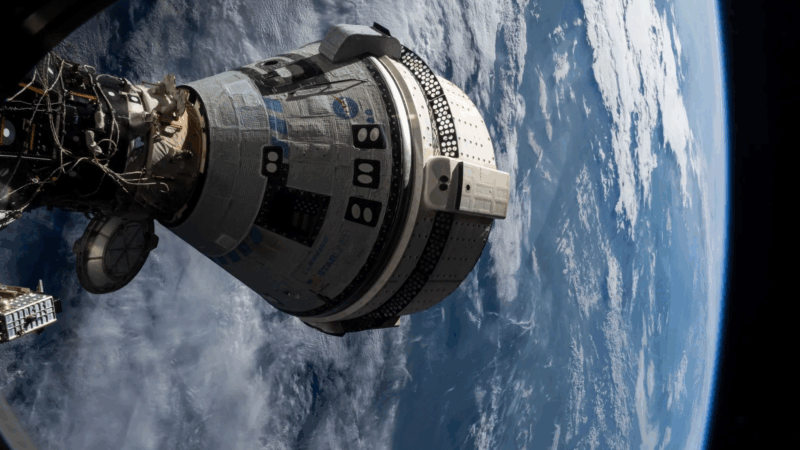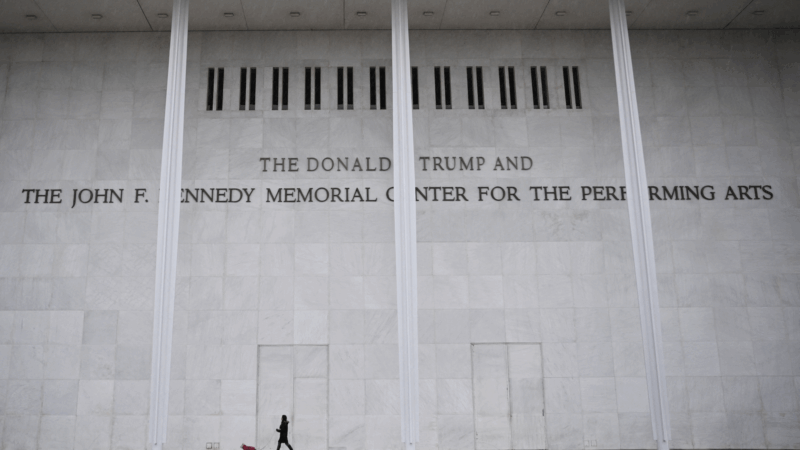Tri-State Water Wars: Atlanta
It’s called “the economic engine of the South”. Atlanta, Georgia’s population has exploded in the last two decades. But with that growth come environmental problems… like where to get enough drinking water. Georgia, Florida and Alabama have been fighting over who gets how much water from rivers that flow through the states. And as Tanya Ott reports a decision in the federal lawsuit could effect communities across the country.
Atlanta draws millions of gallons of drinking water each day from nearby Lake Lanier. But Alabama and Florida say it’s such a water hog, there might not be enough water sent on downstream to cool power plants or protect the seafood industry.
“I had no idea! (laughs) I didn’t really realize there was a problem.”
Atlanta-area resident Connie Brand says she knew the state was in a drought last year. She knew she was supposed to conserve water, and she did.
“Not taking such a long shower. Not doing small loads of laundry.”
But only recently did she realize how big a problem this could be. In July, federal Judge Paul Magnuson ruled that under the law Lake Lanier was intended only for things like navigation and flood control. Not drinking water. He said if Florida, Georgia and Alabama don’t come to a water agreement by 2012, Atlanta has to stop taking drinking water from Lake Lanier.
“The action of a court could create a public health emergency that would probably rival the effects of Katrina.”
That’s Charles Krautler. He’s director of the Atlanta Regional Commission. He says in the past 25 years Atlanta’s population has more than doubled to 4 million residents and there’s no way to get water to people without Lake Lanier.
“How do you decide who doesn’t have water and who does? Our chairman likes to say FEMA doesn’t have enough trucks to bring in enough bottled water to deal with the shortfall that would exist.”
It’s not just an issue for Atlanta. There are more than two dozen similar reservoirs around the country. They were built for navigation, flood control or hydropower. But communities are using them for drinking water. Congress might have to step in – to basically retro-actively approve the drinking water use. Cindy Lowery is executive director of the Alabama Rivers Alliance.
“If it goes to Congress, which the court case says that it might have to, it could get even more political and more chaotic really.”
Several members of Congress have said they won’t act until Florida, Georgia and Alabama come to a deal. But Lowery says so far the negotiations have been dominated by government agencies and special interests like power companies. She wants a panel of neutral advisors and scientists to study the issue.
In the meantime, Atlanta residents like Connie Brand are left wondering what will happen.
“I’m from a family when they grew up they relied on cistern water and when it rained you had water and when id didn’t rain you didn’t have water. So I’m familiar with having to ration and be careful about those kinds of things. But I don’t think my child or people of my generation, their children, have any concept of conservation of water or anything like that.”
Brand says she just might have to step up her own conservation efforts.
“What was it we had in college? If it’s yellow let it mellow, if it’s brown flush it down? That’ll be our new motto!”
Venezuela approves amnesty that may release of hundreds detained for political reasons
Venezuela's acting president has signed into law an amnesty bill that could lead to the release of politicians, activists, lawyers and many others. The approval marks a stark turn for the nation.
In a historic vote, Tennessee Volkswagen workers get their first union contract
Two years ago, the successful union drive at this plant was expected to spark victories throughout the South. But now, as members vote to make their contract official, momentum has fizzled.
NASA chief blasts Boeing, space agency for failed Starliner astronaut mission
NASA's Jared Isaacman slammed Boeing for failures with its Starliner spacecraft, which was deemed unsafe to return its crew of two astronauts from the International Space Station
Internal memo details cosmetic changes and facility repairs to Kennedy Center
Trump announced his plans to close the Kennedy Center entirely for two years "for Construction, Revitalization, and Complete Rebuilding." The announcement came after many prominent artists canceled existing scheduled appearances.
Baby chicks link certain sounds with shapes, just like humans do
A surprising new study shows that baby chickens react the same way that humans do when tested for something called the "bouba-kiki effect," which has been linked to the emergence of language.
American Jordan Stolz speedskates to a third Olympic medal — silver this time
U.S. speedskater Jordan Stolz had a lot of hype accompanying him in these Winter Olympic Games. He's now got two gold medals, one silver, with one event to go.






